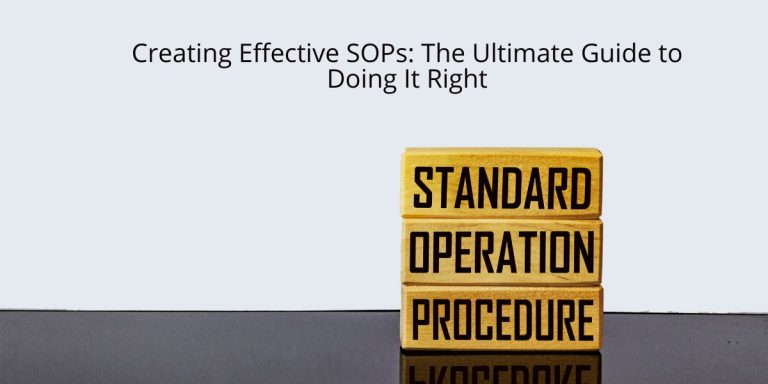The Need to Send Reminders and Timelines to Auditees During an Audit Investigation
Key Takeaways: TL: DR
- Clear timelines and reminders improve collaboration between auditors and auditees.
- Timely communication ensures compliance with audit schedules and avoids delays.
- Proactive updates prevent missing critical deliverables or documentation.
- Automation tools enhance efficiency in managing reminders and deadlines.
- Effective engagement with auditees fosters trust and audit success.
- Sending reminders and defining timelines for auditees ensures:
- Transparency and clear expectations.
- Timely submission of documents and responses.
- Improved collaboration between the audit team and auditees.
- Prevention of unnecessary delays or cost overruns.
- Benefits include:
- Streamlined audit workflows.
- Improved accuracy of findings and recommendations.
- Reduced stress and enhanced engagement from auditees.
- Tools such as automated reminder systems and regular status reports aid in managing deadlines effectively.
Introduction
During an audit investigation, collaboration with auditees is critical for ensuring a smooth and productive process. Auditees play a vital role by providing necessary information, documentation, and access to key resources. However, without structured timelines and regular reminders, the process can face delays and inefficiencies. Sending timely reminders and establishing clear timelines for auditees not only keeps them informed but also ensures that the audit objectives are achieved within the stipulated time.
Importance of Reminders for Auditees
1. Ensuring Timely Submission of Information
Auditors rely heavily on auditees for critical documentation, data, and clarifications. Reminders help auditees stay aware of upcoming deadlines, ensuring they provide required information on time.
Example: A reminder sent one week before the submission of financial statements helps the auditee prepare and avoid last-minute rushes.
2. Promoting Accountability
Regular reminders encourage auditees to take ownership of their responsibilities within the audit process, fostering a sense of accountability.
Quote: “The success of an audit largely depends on the auditee’s responsiveness and timely participation.” – Simeon Bala
3. Minimizing Miscommunication
By sending detailed reminders, auditors can clarify what is required, reducing the risk of errors or misinterpretation by the auditee.
Role of Timelines in Engaging Auditees
1. Establishing a Clear Audit Framework
Defined timelines provide auditees with a roadmap of the audit process, outlining critical milestones and expectations.
| Timeline | Activity | Responsible Party |
|---|---|---|
| Week 1 | Initial meeting and document request | Audit Team & Auditee |
| Week 2–3 | Data collection and analysis | Auditee |
| Week 4 | Draft report review and feedback | Audit Team & Auditee |
2. Enhancing Focus on Priorities
Timelines help auditees prioritize tasks, ensuring critical deliverables are submitted promptly and without compromising quality.
3. Building Trust and Transparency
Clear and structured timelines improve the auditee’s confidence in the audit process, as they know what to expect and when.
Tools for Managing Reminders and Timelines
- Automated Email Systems: Platforms like Microsoft Outlook or project management tools can schedule and send reminders automatically.
- Project Management Software: Tools such as Asana or Trello can track progress and provide visual timelines.
- Custom Checklists: Tailored checklists ensure auditees meet all requirements systematically.
| Task | Due Date | Reminder Date | Status |
|---|---|---|---|
| Submit trial balance | February 10 | February 3 | Completed |
| Provide payroll details | February 15 | February 8 | In Progress |
| Review draft findings | February 20 | February 13 | Pending |
Challenges Faced in Engaging Auditees
1. Resistance to Deadlines
Auditees may struggle to meet timelines due to competing priorities or resource constraints. Building flexibility into timelines can help address this issue.
2. Communication Gaps
Failure to provide clear instructions in reminders can lead to confusion. Detailed communication can mitigate these risks.
3. Dependency on Technology
In organizations with limited technological capabilities, managing reminders and timelines effectively can be a challenge. Simple tools like email and spreadsheets can serve as alternatives.
Best Practices for Sending Reminders and Timelines to Auditees
- Set Expectations Early: Clearly outline what is expected from auditees at the start of the audit.
- Provide Regular Updates: Use weekly reminders to keep auditees informed of upcoming tasks.
- Simplify Communication: Use clear, concise language in all reminders to avoid misunderstandings.
- Leverage Technology: Automate reminders where possible to save time and reduce manual effort.
- Offer Support: Encourage auditees to reach out for clarification or assistance when needed.
Conclusion
Sending timely reminders and well-structured timelines to auditees is integral to the success of an audit investigation. These practices ensure that auditees remain engaged, informed, and prepared throughout the process, ultimately leading to more accurate and efficient audits. By leveraging tools, maintaining clear communication, and fostering collaboration, auditors can create a seamless and productive experience for all parties involved.
Hashtags
#AuditProcess #Auditees #AuditReminders #TimelineManagement #EfficientAudits #Deloitte #KPMG #Accountability #Compliance

